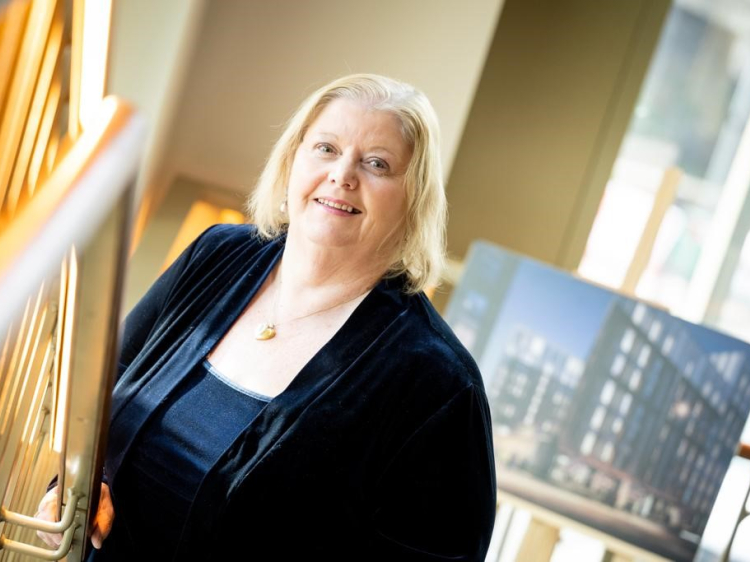Estelle is a Black victim-survivor of domestic abuse. Her experience illustrates the many insidious ways that perpetrators leverage power and control, and how employers that don't support their employees impacted by abuse risk re-traumatising and harming them further. We thank Estelle for her candid words and hope that her story will help others.
Estelle was 19 when she met her boyfriend through social media. They had mutual friends, and he took her on an extravagant first date in London – driving down from their home city of Coventry. What she then thought was princess treatment, she now recognises as love-bombing. Although he was very charming and complimentary to her, Estelle also noticed that he made derogatory remarks about “certain types” of women.
The first abusive incident occurred when they were driving home from a local coffee shop, having picked up coffees for Estelle’s family. Her boyfriend calmly stopped his car, threw the coffees out of the window, and claimed Estelle was disrespecting him by wearing shoes in his car. Confused and scared, she begged to be let out while he sped home towards her house. As she was getting out, he stepped on the gas and knocked her out of the car.
“My family didn’t directly say that they didn’t believe me when I told them, but they did ask if I was sure about what had happened.”
Webs of control
After the incident, her boyfriend asked for forgiveness and promised never to do it again. But as time went on, he spun a web of control around Estelle. He encouraged her to drop out of university. He humiliated her and acted aggressively in front of her friends and family. He told her friends to stop contacting her and didn’t let them see her on her own. He drove her everywhere, never letting her take her own car.
“He had always had a temper, but I felt like I was the only one who could calm him down, like I had a duty to look after him. I felt so confused. Maybe it was my fault, maybe I shouldn’t be friends with other guys…”
They had both wanted to be parents. But when Estelle got pregnant, her boyfriend demanded she have an abortion. Later, he told her that he was testing her to see if she was ready to be a mother who would do everything for her child. Throughout Estelle’s pregnancy, the abuse escalated. He would threaten to kill himself and leave her to raise their unborn child alone, and regularly subjected her to sexual violence.
“Throughout my pregnancy, I didn’t experience a single happy moment. I was constantly walking on eggshells.”
The turning point
When their daughter was born, Estelle’s boyfriend surprised her with a flat an hour away from where her family lived. While he claimed it was a new start, it quickly turned into a tool to isolate her further. After a distressing episode of reckless driving to the point where his tyre exploded, he suddenly disappeared for a week. Estelle, feeling depressed and anxious with a newborn daughter, decided to leave him and move back with her family.
When her boyfriend returned and Estelle refused to accept his apologies and extravagant gifts, he begun to weaponise their daughter as a tool of control. Estelle endured years of post-separation abuse; he would refuse to let her collect her daughter from his house and called the police in the middle of the night, claiming that Estelle was having a mental health breakdown. He continued to report her to the police regularly. The police never asked Estelle whether she needed support or whether she was experiencing abuse.
“I was trying to leave his house with my daughter when he pushed me to the ground. His expression was completely black, and I thought that would be the end. A part of me was angry that he chose to be physically violent when my daughter was there, as he usually controlled me in other ways.”
Estelle filed for a non-molestation order. Four days later, he sued her for full custody. The Family Court process took over two years. She was referred to Refuge, who assigned her a caseworker Estelle describes as “amazing”, who called her every week and offered to support her practically to file a police report. At first, Estelle didn’t think she was a victim-survivor of domestic abuse, rather that her boyfriend was “just an angry man”. However, after he sued for custody, she took the case to the police.
The unique challenges facing Black victim-survivors of domestic abuse
“Being a Black victim is impossible. There is no right way for Black women to suffer. We are shaped by society’s expectations and adapt ourselves to them. I knew that if I remained composed while talking to the police, they wouldn’t take my abuse seriously – but if I was agitated, they would see me as catastrophically angry and crazy. Learning how to act right in that situation is like trying to understand how to swim when you’re drowning.”
Systemic racism is a key barrier to Black people disclosing experiences of abuse and accessing support. According to research by Sistah Space, 89% of Black women personally know a Black woman who has, or is, experiencing domestic abuse. UK police forces have faced widespread criticism for failing to address institutional racism - both in their treatment of Black victims and their internal practices - further eroding confidence among Black communities.
Estelle didn’t know at the time that there were specialist services for Black women. In hindsight, she would have reached out to them if she had known, but she was young and felt completely overwhelmed by the situation. She underlines that she feels very grateful to Refuge for providing her with the support they did, and highlights the importance of providing victim-survivors with support as early as possible.
She recalls countless failings by the police and criticises the metrics used to quantify experiences of abuse and levels of risk, such as having to report a certain number of incidents before they would take action, effectively asking her to suffer more trauma and abuse. Her reports of domestic abuse and child abduction were not sufficient in themselves to secure a conviction of her abuser, who lost in court only when it was discovered he had forged court documents.
Trauma in the workplace – the impact of employers
When Estelle begun a new job after maternity leave, she didn’t disclose her experience of domestic abuse. However, she did tell her manager that she needed time off to attend court hearings and other appointments. The manager, rather than inviting a more open conversation about how the workplace could support Estelle, would only ask whether she needed a full day off or whether she could make do with half a day.
Estelle overheard her manager talk to their colleagues about her own experiences with a “crazy ex-boyfriend”, and understood that the manager herself was unaware that she too was a victim-survivor of domestic abuse. She did not have the tools or awareness to fully understand her own experience, let alone those of her colleagues.
Episodes that to Estelle were traumatic were used as office banter. One such incident was a family trip to the Maldives, Estelle’s first major trip outside the UK after fleeing her abuser. Upon arriving at the airport in the Maldives, she was told by airport staff that her passport had been reported stolen, and she was deported back to England without her daughter or family. It was her ex who had falsely reported the stolen passport to sabotage her trip. Her manager shouted at Estelle across the room “Estelle, remember that time when your crazy ex-boyfriend stole your passport?” for everyone to hear. This outright violation of privacy is never acceptable behaviour from a manager, or indeed any colleague.
Estelle’s manager saw her as the stereotype of a “strong Black woman”, rather than as a victim-survivor of abuse who needed support and care. Estelle was expected to step into customer-facing situations with a bright smile straight after returning from Family Court hearings. She still feels the effects of the abuse in her everyday life. She continues to worry about things she can and cannot do based on her ex-boyfriend’s rules.
“Acknowledging racism is hard. We all hold unconscious bias, myself included. But we can’t continue like this, where Black people need to withstand more pain in order to be heard. That creates trauma across generations.”
It is crucial for employers to be aware of domestic abuse and its impacts generally, and specifically the barriers to support that employees facing additional marginalisation may experience. If victim-survivors are met with judgement or lack of empathy when they first disclose, they may never share their experience again and could be put at further risk of harm. EIDA’s mission is for every UK employer to take effective action on domestic abuse. Make sure your workplace response is inclusive, and that you build a culture of openness and trust where every employee feels valued and supported.







